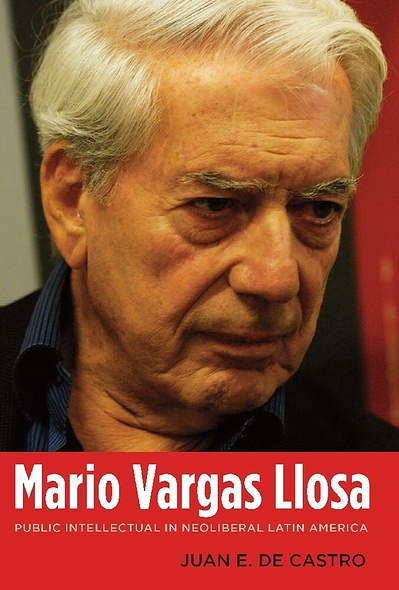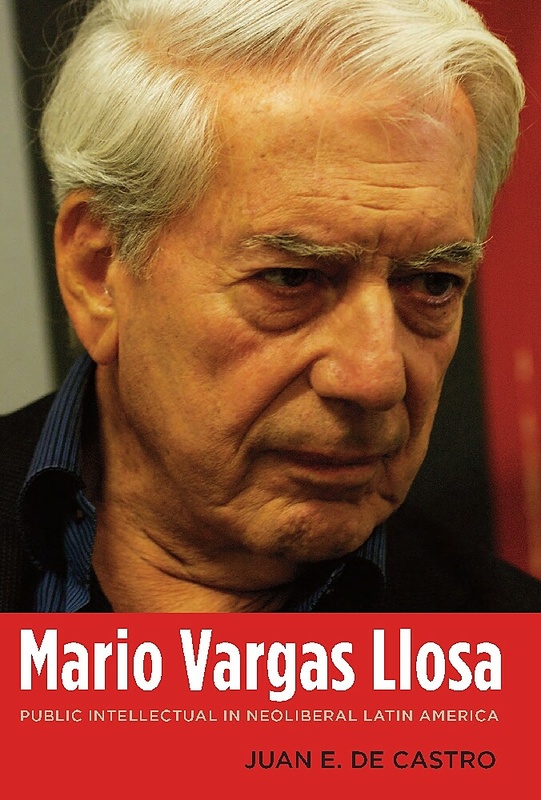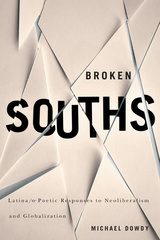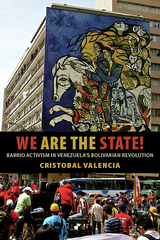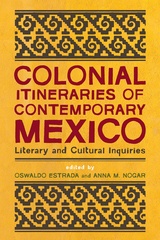Mario Vargas Llosa
Public Intellectual in Neoliberal Latin America
The University of Arizona Press
It would have been an ardent debate: Hugo Chávez, outspoken emblem of Latin American socialism, on one side and Mario Vargas Llosa, Peruvian novelist, polemical champion of the free market, and eventual winner of a Nobel Prize for literature, on the other. Unfortunately, it was not to be. For author Juan E. De Castro, what was most remarkable about the proposed debate was not only that it was going to happen in the first place but that Chávez called it off, a move that many chalked up to trepidation on the Venezuelan president’s part. Whatever the motivation, the cancellation served to affirm Vargas Llosa’s already substantial intellectual and political stature.
The idea of a sitting president debating a novelist may seem surprising to readers unfamiliar with Latin American politics, but Vargas Llosa has enjoyed considerable influence in the political arena, thanks in no small part to his run for the Peruvian presidency in 1990. Though he was awarded the Nobel Prize in 2010 for his literary achievements, he is as well known in the Spanish-speaking world for his political columns as he is for his novels. In his widely syndicated political pieces, Vargas Llosa asserts a position he calls “liberal” in the classical sense of affirming the importance of a free market and individual rights, though as De Castro argues, he has often aligned himself with groups that emphasize the former at the expense of the latter.
What makes Vargas Llosa’s rise to political prominence compelling is “not only that he is still a vibrantly active writer, but that he was at the time of the beginning of his rise to literary fame, and throughout the 1960s, a staunch defender of the Cuban Revolution.” While his early literary output seemed to proclaim an allegiance with the Left, Vargas Llosa was soon to take a right turn that De Castro argues was anticipatory and representative of the Latin American embrace of the free market in the 1990s. Understanding Vargas Llosa’s political thought is thus of more than biographical interest. It is a key to understanding the social and cultural shifts that have taken place not only in Peru but throughout Latin America.
The idea of a sitting president debating a novelist may seem surprising to readers unfamiliar with Latin American politics, but Vargas Llosa has enjoyed considerable influence in the political arena, thanks in no small part to his run for the Peruvian presidency in 1990. Though he was awarded the Nobel Prize in 2010 for his literary achievements, he is as well known in the Spanish-speaking world for his political columns as he is for his novels. In his widely syndicated political pieces, Vargas Llosa asserts a position he calls “liberal” in the classical sense of affirming the importance of a free market and individual rights, though as De Castro argues, he has often aligned himself with groups that emphasize the former at the expense of the latter.
What makes Vargas Llosa’s rise to political prominence compelling is “not only that he is still a vibrantly active writer, but that he was at the time of the beginning of his rise to literary fame, and throughout the 1960s, a staunch defender of the Cuban Revolution.” While his early literary output seemed to proclaim an allegiance with the Left, Vargas Llosa was soon to take a right turn that De Castro argues was anticipatory and representative of the Latin American embrace of the free market in the 1990s. Understanding Vargas Llosa’s political thought is thus of more than biographical interest. It is a key to understanding the social and cultural shifts that have taken place not only in Peru but throughout Latin America.
Juan E. De Castro is an associate professor in literary studies at Eugene Lang College, the New School for Liberal Studies. He is author of Mestizo Nations: Culture, Race, and Conformity in Latin American Literature, also published by the University of Arizona Press.
Introduction
1. Mario Vargas Llosa, Public Intellectual
2. Mr. Vargas Llosa Goes to Washington
3. “Talkin’ ’bout a Revolution”: Mario Vargas Llosa and Popular Capitalism
4. Mario Vargas Llosa versus Barbarism
5. Mario Vargas Llosa’s (Mis)Encounter with Theory
Conclusion: Mario Vargas Llosa, Organic Intellectual
Epilogue: Mario Vargas Llosa, Nobelist
Notes
Works Cited
Index

